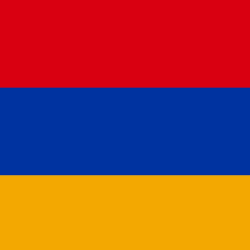Hilmar Kaiser on Armenian Genocide denial
Research on the Armenian Genocide has experienced a remarkable growth in recent years. Survivors' memoirs, editions of diplomatic documents, eyewitness accounts by missionaries and others, case studies, and monographic research on various aspects of the Genocide provide informed insights into the nature of the crime.
A considerable number of the available studies on the subject have involved the denial of this genocide. Deniers allege that the Ottoman government never persecuted systematically or attempted to exterminate the empire's Armenian population. On the contrary, one is asked to believe that it was the Armenians who killed a substantial part of the Muslim population in what is presented as a "civil war". Moreover Armenians are blamed for having started this civil war in order to assist the Russian army's advance on the Eastern front and to bring down the Ottoman government. Deniers maintain that relatively few Armenians died in connection with what they claim to have been a legitimate act of Ottoman government self-defense.
Denial of genocide is not unique to the Armenian case. As with other crimes, perpetrators try to avoid punishment by obstructing investigation and research. Those engaged in denial employ a multitude of techniques. These methods cover a wide range of activities, from simply ignoring the established historical record to the intimidation of scholars.
Denial of both the Holocaust and the Armenian Genocide was initiated by the perpetrators immediately upon commencement of the extermination of their targeted victims. However, denial of the Armenian Genocide differs significantly from that of the Holocaust. Whereas the Nazi Germans were permanently crippled by their defeat in World War II, the Ottoman government was able to reorganize itself following defeat. With slightly altered personnel, the government that had been the "Committee of Union and Progress" (CUP), which was responsible for the Armenian Genocide, was able to reemerge by way of the nationalist movement, ostensibly led by Mustafa Kemal Pasha. Thus, the CUP cadres managed to keep control to Turkish politics for many years to come and were able to perpetuate their denial propaganda as the official Turkish historical thesis on the Armenian Genocide. This denial was, and today still is, formulated in official Turkish government publications and distributed worldwide.
Hilmar Kaiser
German research scholar and historian from
the European University Institute in Florence, Italy
From 20 voices a great site concerning the Armenian Genocide that shoudl be checked out:
Research on the Armenian Genocide has experienced a remarkable growth in recent years. Survivors' memoirs, editions of diplomatic documents, eyewitness accounts by missionaries and others, case studies, and monographic research on various aspects of the Genocide provide informed insights into the nature of the crime.
A considerable number of the available studies on the subject have involved the denial of this genocide. Deniers allege that the Ottoman government never persecuted systematically or attempted to exterminate the empire's Armenian population. On the contrary, one is asked to believe that it was the Armenians who killed a substantial part of the Muslim population in what is presented as a "civil war". Moreover Armenians are blamed for having started this civil war in order to assist the Russian army's advance on the Eastern front and to bring down the Ottoman government. Deniers maintain that relatively few Armenians died in connection with what they claim to have been a legitimate act of Ottoman government self-defense.
Denial of genocide is not unique to the Armenian case. As with other crimes, perpetrators try to avoid punishment by obstructing investigation and research. Those engaged in denial employ a multitude of techniques. These methods cover a wide range of activities, from simply ignoring the established historical record to the intimidation of scholars.
Denial of both the Holocaust and the Armenian Genocide was initiated by the perpetrators immediately upon commencement of the extermination of their targeted victims. However, denial of the Armenian Genocide differs significantly from that of the Holocaust. Whereas the Nazi Germans were permanently crippled by their defeat in World War II, the Ottoman government was able to reorganize itself following defeat. With slightly altered personnel, the government that had been the "Committee of Union and Progress" (CUP), which was responsible for the Armenian Genocide, was able to reemerge by way of the nationalist movement, ostensibly led by Mustafa Kemal Pasha. Thus, the CUP cadres managed to keep control to Turkish politics for many years to come and were able to perpetuate their denial propaganda as the official Turkish historical thesis on the Armenian Genocide. This denial was, and today still is, formulated in official Turkish government publications and distributed worldwide.
Hilmar Kaiser
German research scholar and historian from
the European University Institute in Florence, Italy
From 20 voices a great site concerning the Armenian Genocide that shoudl be checked out:





Comment